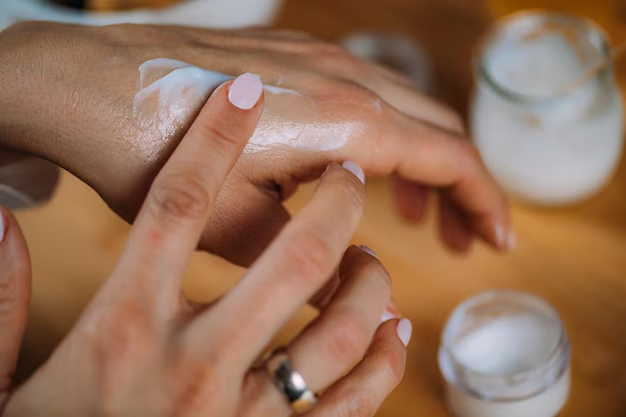Finding Relief: The Best Creams for Managing Eczema
If you’re dealing with the persistent itch and irritation of eczema, you're not alone. Eczema affects millions across the globe, prompting a constant quest for effective skincare solutions. Fortunately, there are several creams available designed to combat the uncomfortable symptoms of this often stubborn skin condition. But what makes a cream “good” for eczema, and how do you choose the right one?
Understanding Eczema: A Brief Overview
Eczema, or atopic dermatitis, is a chronic inflammatory skin condition characterized by dry, itchy patches. It often fluctuates between flare-ups and periods of remission. Triggers can include allergens, environmental factors, stress, and even the weather. Managing eczema means not just addressing symptoms during a flare-up, but also maintaining healthy skin during calmer periods.
What to Look for in an Eczema Cream
When searching for an eczema cream, several key factors can guide your decision:
Active Ingredients: Look for creams containing ingredients like ceramides, which help restore the skin barrier, and humectants like glycerin to retain moisture. Anti-inflammatory ingredients such as colloidal oatmeal and calendula soothe irritation.
Free from Irritants: Avoid creams with fragrances, dyes, and harsh chemicals that may aggravate sensitive skin.
Dermatologist Tested: Opt for products tested and recommended by dermatologists to ensure safety and efficacy.
Moisturizing Properties: Thick, emollient-rich creams tend to provide better hydration and protection for the skin.
These criteria are a good starting point, but knowing which specific products meet these guidelines can be challenging.
Highly Rated Eczema Creams
In the crowded marketplace of eczema treatments, several creams stand out due to their positive reviews and ingredient efficacy.
1. CeraVe Moisturizing Cream
CeraVe is a household name in skincare, known for its unique combination of ceramides and hyaluronic acid, both of which are excellent for skin hydration and barrier repair. This cream is thick, yet easily absorbs into the skin without leaving a greasy residue, making it ideal for daily use.
2. Eucerin Eczema Relief
Eucerin’s specialized eczema formula includes colloidal oatmeal and ceramide-3, providing comforting hydration while soothing itchy and red skin. This cream is also steroid-free and fragrance-free, making it suitable for use in both adults and children.
3. Aveeno Eczema Therapy Moisturizing Cream
Formulated with colloidal oatmeal, this Aveeno cream gently soothes itchiness and irritation. It also boasts an endorsement from the National Eczema Association, serving as a testament to its efficacy.
4. Vanicream Moisturizing Cream
Vanicream is considered a go-to option for those with highly sensitive skin. Free of dyes, fragrances, and parabens, it offers deep moisturization without irritating delicate skin.
Natural and Homemade Alternatives
Some individuals prefer natural or DIY methods due to their simplicity and the ability to control ingredients precisely.
Coconut Oil
As a natural emollient, coconut oil is rich in anti-inflammatory and moisturizing properties. It can be applied alone or mixed with other natural ingredients like beeswax or shea butter to provide a soothing balm.
Aloe Vera Gel
Aloe vera is famed for its cooling properties, which help relieve the sensation of itching. Consider creating a simple gel by mixing pure aloe vera with a few drops of lavender oil for additional anti-inflammatory benefits.
Oatmeal Baths and Lotions
Oatmeal is not just for breakfast. Oatmeal baths and lotions can soothe and moisturize inflamed skin. Finely ground oats can be added directly to bathwater, while oatmeal-infused lotions can be used daily.
Lifestyle Tips to Complement Cream Use
The best results often come from combining creams with lifestyle adjustments.
Optimal Skincare Routine
- Bathe Daily with Care: Use lukewarm water and gentle, fragrance-free cleansers. Pat your skin dry with a soft towel, leaving some moisture on the skin, and immediately apply your chosen cream to lock in hydration.
- Avoid Triggers: Maintain a diary to identify and avoid specific eczema triggers, whether they be particular foods, fabrics, or environmental factors.
- Stay Hydrated: Ensure adequate fluid intake, as internal hydration reflects on skin health.
Dietary Considerations
- Omega-3 Fatty Acids: Foods rich in omega-3s, like fish or flaxseeds, can offer anti-inflammatory benefits that may improve skin condition.
- Probiotics: Some studies suggest that probiotics can help in balancing gut bacteria, potentially reducing eczema severity.
Final Thought: Tailoring Your Approach
Managing eczema effectively often requires a tailored approach. While creams play a critical role, incorporating lifestyle changes and understanding personal triggers can significantly enhance your skincare regimen. Patience and consistency are key as you experiment with products and strategies that work best for you.
Here’s a quick reference summary to help guide your next steps:
Eczema Management Cheat Sheet 🌟
- Top Ingredients to Look For: Ceramides, hyaluronic acid, colloidal oatmeal, glycerin
- Avoid: Fragrances, dyes, harsh chemicals
- Highly Rated Creams:
- CeraVe Moisturizing Cream
- Eucerin Eczema Relief
- Aveeno Eczema Therapy
- Vanicream Moisturizing Cream
- Natural Alternatives: Coconut oil, aloe vera gel, oatmeal baths
- Lifestyle Tips: Bathe daily with care, avoid personal triggers, stay hydrated
- Dietary Support: Include omega-3 rich foods and probiotics
For those battling eczema, the ultimate measure of success is healthy, comfortable skin. With the right products and lifestyle adjustments, relief is within reach.

